Brazil's big lie?
Facing defeat, Brazil's president might be preparing to run Trump's playbook

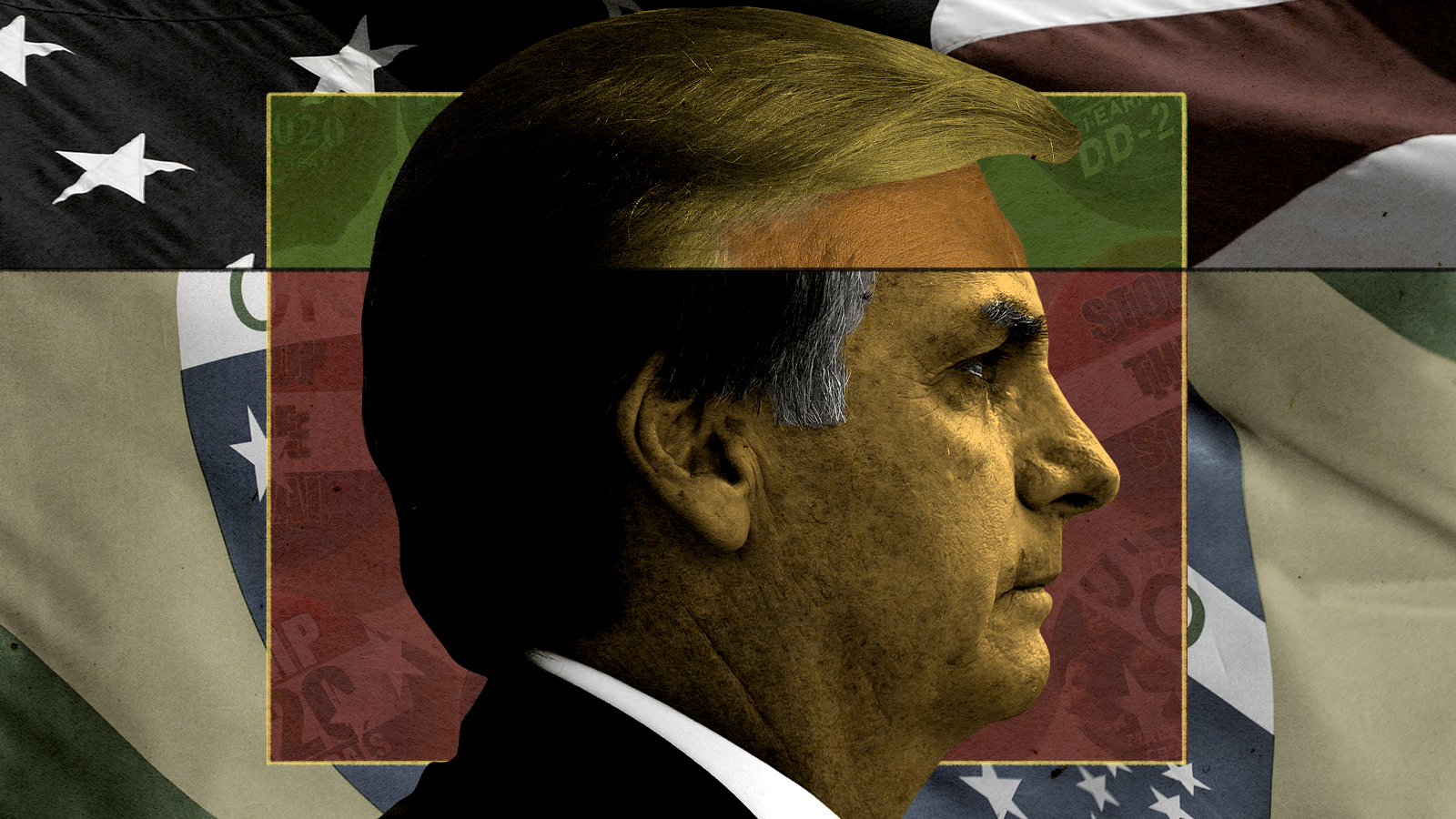
A free daily email with the biggest news stories of the day – and the best features from TheWeek.com
You are now subscribed
Your newsletter sign-up was successful
On Oct. 2, Brazil will hold its national elections for the presidency and the National Congress. Controversial incumbent President Jair Bolsonaro is seeking a second term, but opinion polling shows him losing decisively to former President Luiz Inácio Lula da Silva, known as Lula.
On Monday, Bolsonaro gathered foreign diplomats in the capital of Brasília to lay out a lurid theory of how the country's voting machines are rigged. Is Bolsonaro preparing to contest the election no matter the outcome? Here's everything you need to know about Bolsonaro's plans and how they could impact Brazilian democracy – and America's:
What is the state of play in the election?
With voting just over two months away, the combative nationalist Bolsonaro is in deep trouble. Opinion polling shows him trailing Lula by double digits in the multi-candidate first round. If no candidate gets a majority, a runoff between the top two candidates will be held on Oct. 30. In that potential head-to-head matchup with Lula, things look even worse for Bolsonaro. A former army captain in Brazil's military, which overthrew a democratically elected government in 1964 and ruled for 21 years, Bolsonaro has watched his popularity erode during the coronavirus pandemic, with Brazilians souring on his government laissez-faire approach to COVID-19 mitigation that has left the country with one of the world's worst death rates.
The Week
Escape your echo chamber. Get the facts behind the news, plus analysis from multiple perspectives.

Sign up for The Week's Free Newsletters
From our morning news briefing to a weekly Good News Newsletter, get the best of The Week delivered directly to your inbox.
From our morning news briefing to a weekly Good News Newsletter, get the best of The Week delivered directly to your inbox.
To make the election even more fraught, the 75-year-old Lula, a leftist who was president from 2003 to 2011, recently had a 2018 corruption conviction overturned by the country's Supreme Court. The stakes of the election for Latin America's most populous country are high enough that Bolsonaro has received help from former U.S. President Donald Trump and conservative media figures like Tucker Carlson, who taped several episodes of his Fox News program from Brazil in June and sat down for an interview with Bolsonaro.
How are Bolsonaro's supporters responding?
Ominously, Bolsonaro and a number of senior military figures have sharpened their rhetoric as his popularity waned by undermining confidence in Brazil's democratic institutions, including its voting system. The strategy bears an eerie resemblance to Trump's campaign to discredit the results of the 2020 election long before the election was held, which was merely a more systematic version of his pre-election refusal to accept the outcome of the 2016 election. In a 47-minute presentation on Monday, Bolsonaro talked again about his claims that hackers interfered with the 2018 election (which he won by double digits) but presented no new evidence that the vote count will be compromised or that the country's top court is somehow conspiring against him. He also suggested that the military help oversee the election and conduct its own parallel count of the votes. Last year, Bolsonaro organized a military procession to roll in front of Congress while it debated a measure to have electronic voting machines print paper ballots, calling on his supporters to "fight with all of their weapons." The country's Supreme Court rejected the paper ballot proposal as an unconstitutional violation of the right to a secret ballot in 2018.
Unlike Trump, Bolsonaro has powerful allies in the military and almost certainly has a more coherent plan to illegally install himself in power. Last month, he promised that "we will go to war" if there is voter fraud. The longer and more forcefully that Bolsonaro presses the narrative that the election is being stolen from him, the more likely it is that Brazil's military will step in to keep him in power and to prevent Lula from taking office. No shots would need to be fired, at least not at first: All it would take is for the military to conduct an Arizona-style "audit" of the results, as Bolsonaro appears to be inviting, and to conclude he was the real winner.
What are the implications for democracy?
Bolsonaro's attacks on Brazil's democratic institutions mean that the Western Hemisphere's two largest countries are embroiled in ongoing legitimacy and constitutional crises sparked by right-wing populists who refuse to accept the verdict of the electorate, part of a global wave of anti-democratic behavior and strategy that is increasingly coordinated between far-right forces in different countries. While advocating for paper ballots is not in and of itself indicative of nascent authoritarianism — many election reform advocates in the U.S. want similar changes here — it is the way that Bolsonaro is weaponizing doubts about the democratic process that is most concerning for the future of Brazilian democracy.
A free daily email with the biggest news stories of the day – and the best features from TheWeek.com
As has happened in the United States, when the party leader claims that an election was stolen, no matter how groundless the accusation, a significant share of the rank-and-file will come to believe it. The erosion of trust between rival political elites, the radicalization of voters, and the failure to execute what should be routine and peaceful transfers of power are all troubling signs of democracies in peril. Together these developments represent a collapse of what Steven Levitsky and Daniel Ziblatt called mutual toleration, or "the understanding that competing parties accept one another as legitimate rivals," in their 2018 book How Democracies Die. The murder last week of an official in Lula's party by a Bolsonaro supporter suggests that the runup to the election is likely to be both extremely tense and potentially violent.
The Biden administration recognizes the gravity of the threat to Brazilian democracy, and has forcefully defended the integrity of the country's voting system. U.S. Diplomats have prevailed upon Bolsonaro, unsuccessfully, to knock it off. Beyond the obvious downsides of a large and important country falling into the hands of autocrats, the White House surely fears the impact on U.S. politics of a successful coup that utilizes the same narrative strategy employed by Republicans planning to contest the 2024 election results. But the U.S. ultimately has limited leverage over Brazil and would be unable to do much of anything in the near term to restore democratic rule there should it backslide into authoritarianism.
David Faris is a professor of political science at Roosevelt University and the author of "It's Time to Fight Dirty: How Democrats Can Build a Lasting Majority in American Politics." He's a frequent contributor to Newsweek and Slate, and his work has appeared in The Washington Post, The New Republic and The Nation, among others.
-
 The Olympic timekeepers keeping the Games on track
The Olympic timekeepers keeping the Games on trackUnder the Radar Swiss watchmaking giant Omega has been at the finish line of every Olympic Games for nearly 100 years
-
 Will increasing tensions with Iran boil over into war?
Will increasing tensions with Iran boil over into war?Today’s Big Question President Donald Trump has recently been threatening the country
-
 Corruption: The spy sheikh and the president
Corruption: The spy sheikh and the presidentFeature Trump is at the center of another scandal
-
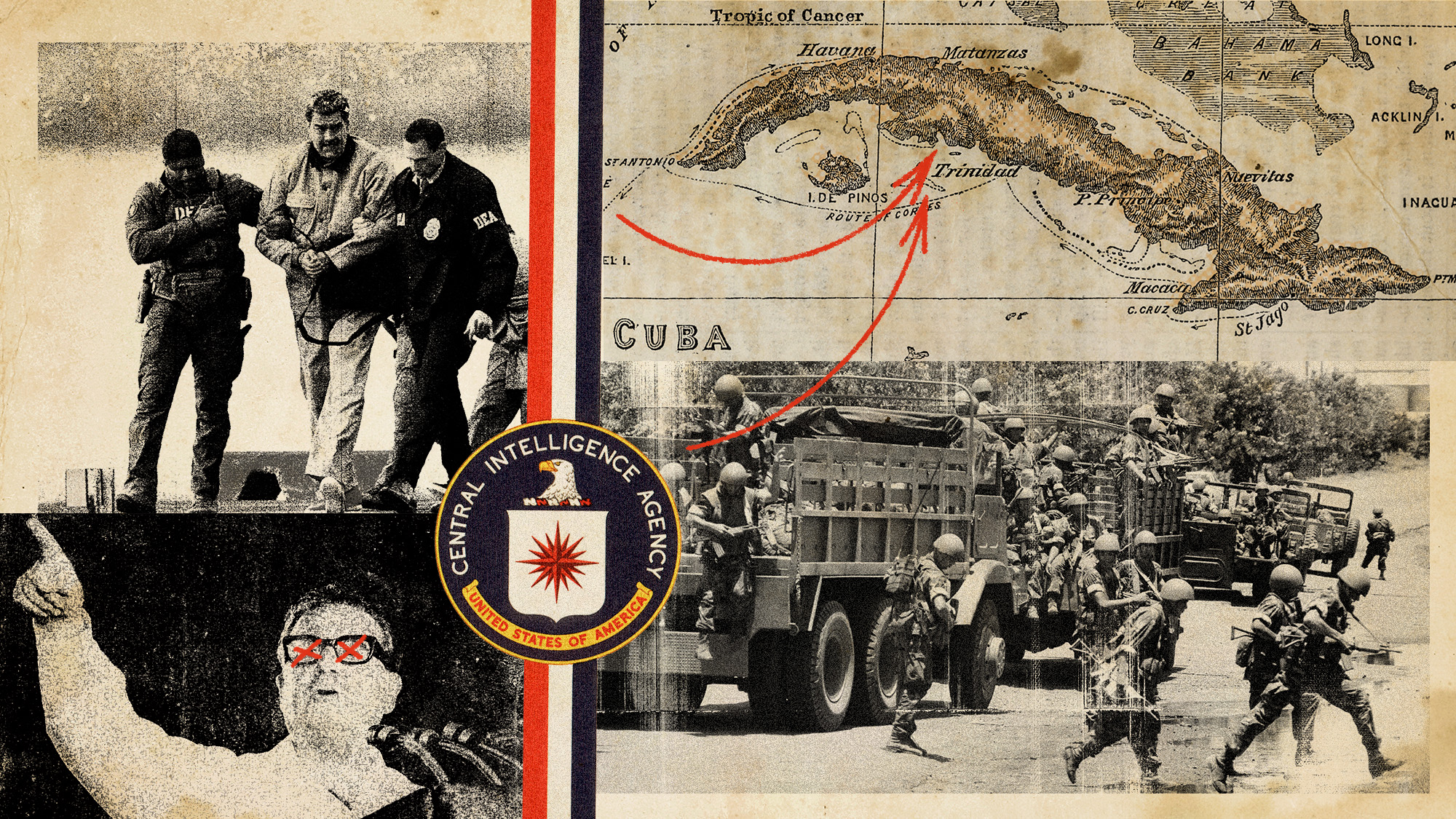 A running list of US interventions in Latin America and the Caribbean after World War II
A running list of US interventions in Latin America and the Caribbean after World War IIin depth Nicolás Maduro isn’t the first regional leader to be toppled directly or indirectly by the US
-
 The billionaires’ wealth tax: a catastrophe for California?
The billionaires’ wealth tax: a catastrophe for California?Talking Point Peter Thiel and Larry Page preparing to change state residency
-
 Bari Weiss’ ‘60 Minutes’ scandal is about more than one report
Bari Weiss’ ‘60 Minutes’ scandal is about more than one reportIN THE SPOTLIGHT By blocking an approved segment on a controversial prison holding US deportees in El Salvador, the editor-in-chief of CBS News has become the main story
-
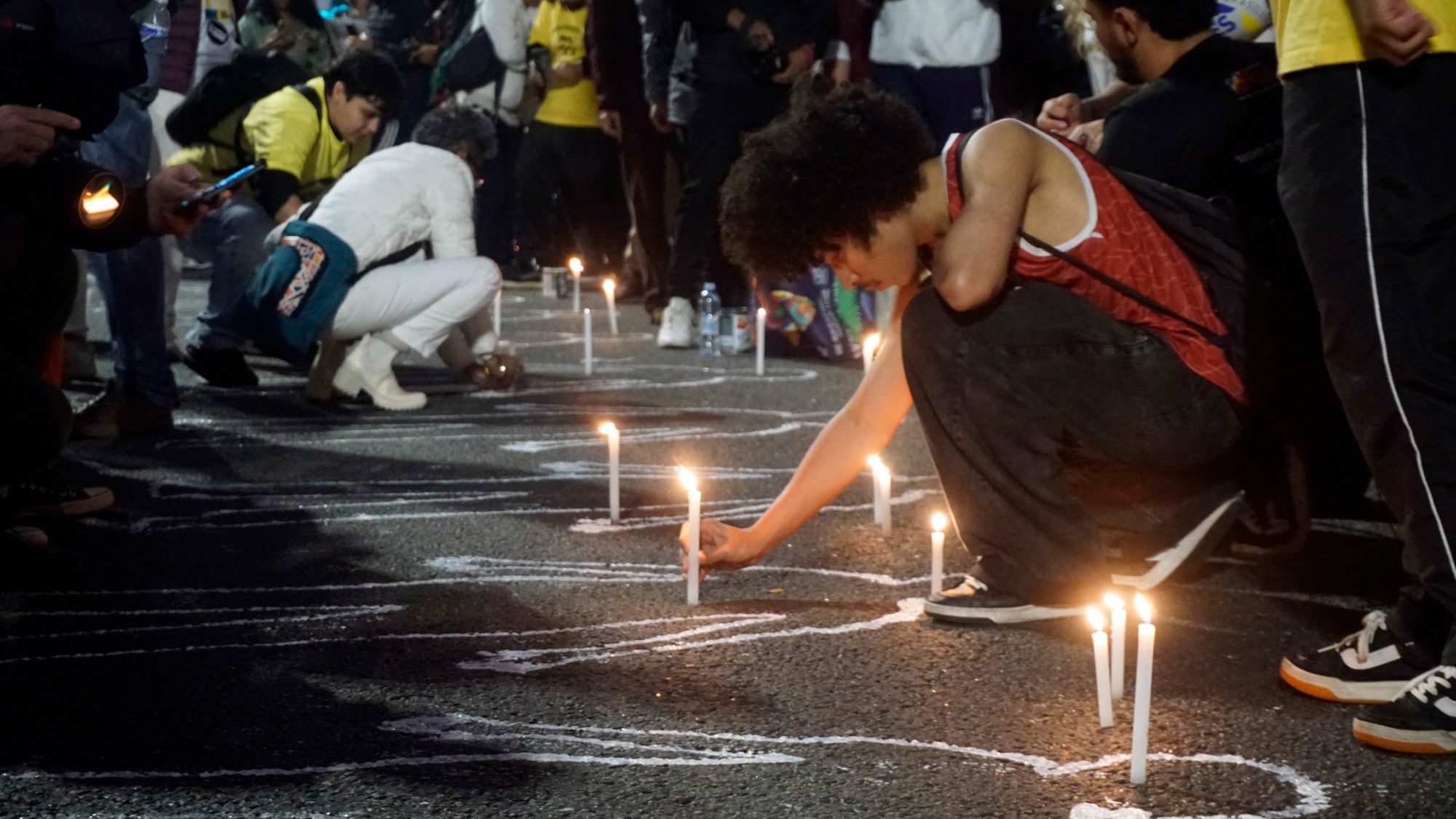 Massacre in the favela: Rio’s police take on the gangs
Massacre in the favela: Rio’s police take on the gangsIn the Spotlight The ‘defence operation’ killed 132 suspected gang members, but could spark ‘more hatred and revenge’
-
 Has Zohran Mamdani shown the Democrats how to win again?
Has Zohran Mamdani shown the Democrats how to win again?Today’s Big Question New York City mayoral election touted as victory for left-wing populists but moderate centrist wins elsewhere present more complex path for Democratic Party
-
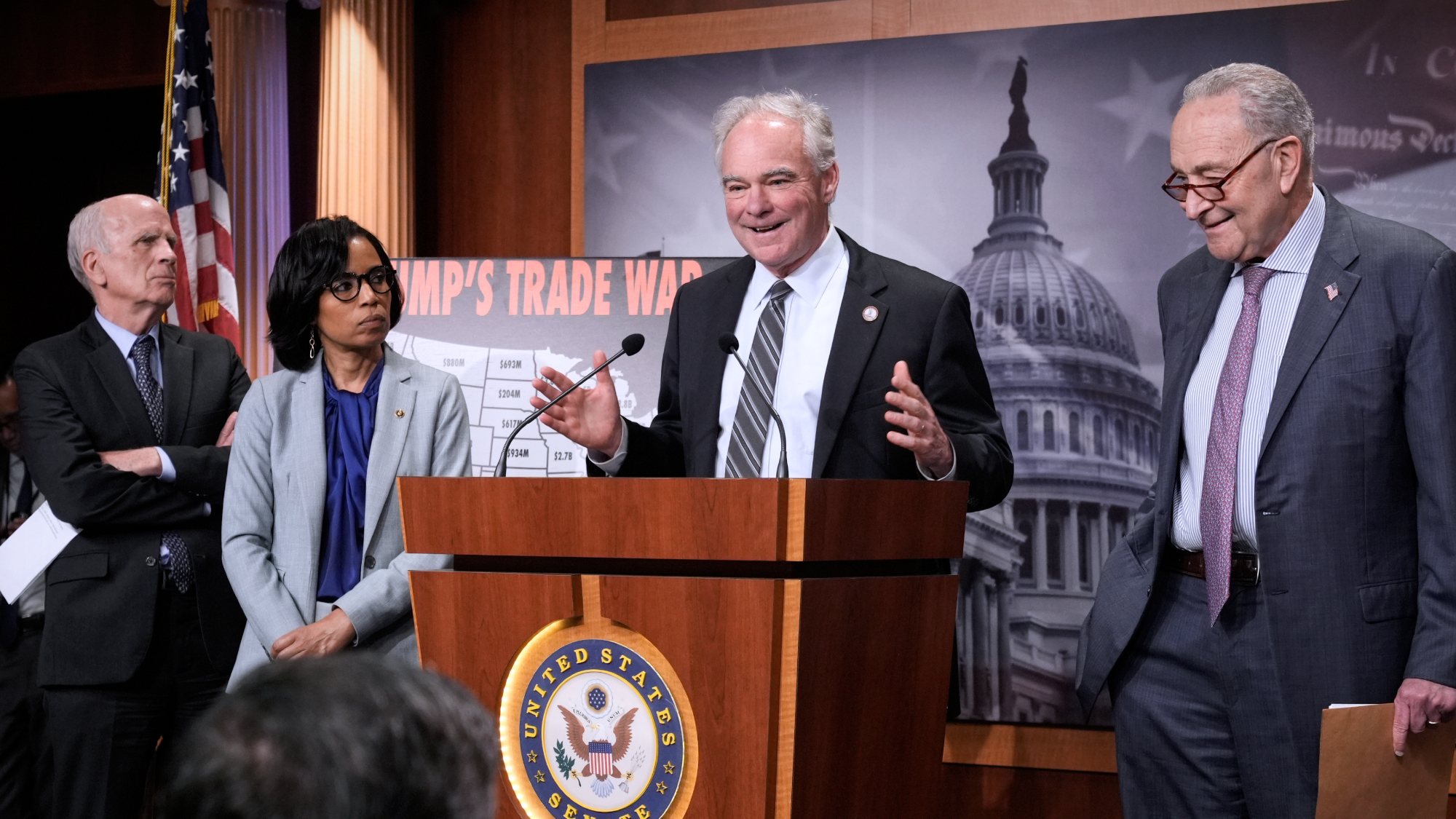 Senate votes to kill Trump’s Brazil tariff
Senate votes to kill Trump’s Brazil tariffSpeed Read Five Senate Republicans joined the Democrats in rebuking Trump’s import tax
-
 Millions turn out for anti-Trump ‘No Kings’ rallies
Millions turn out for anti-Trump ‘No Kings’ ralliesSpeed Read An estimated 7 million people participated, 2 million more than at the first ‘No Kings’ protest in June
-
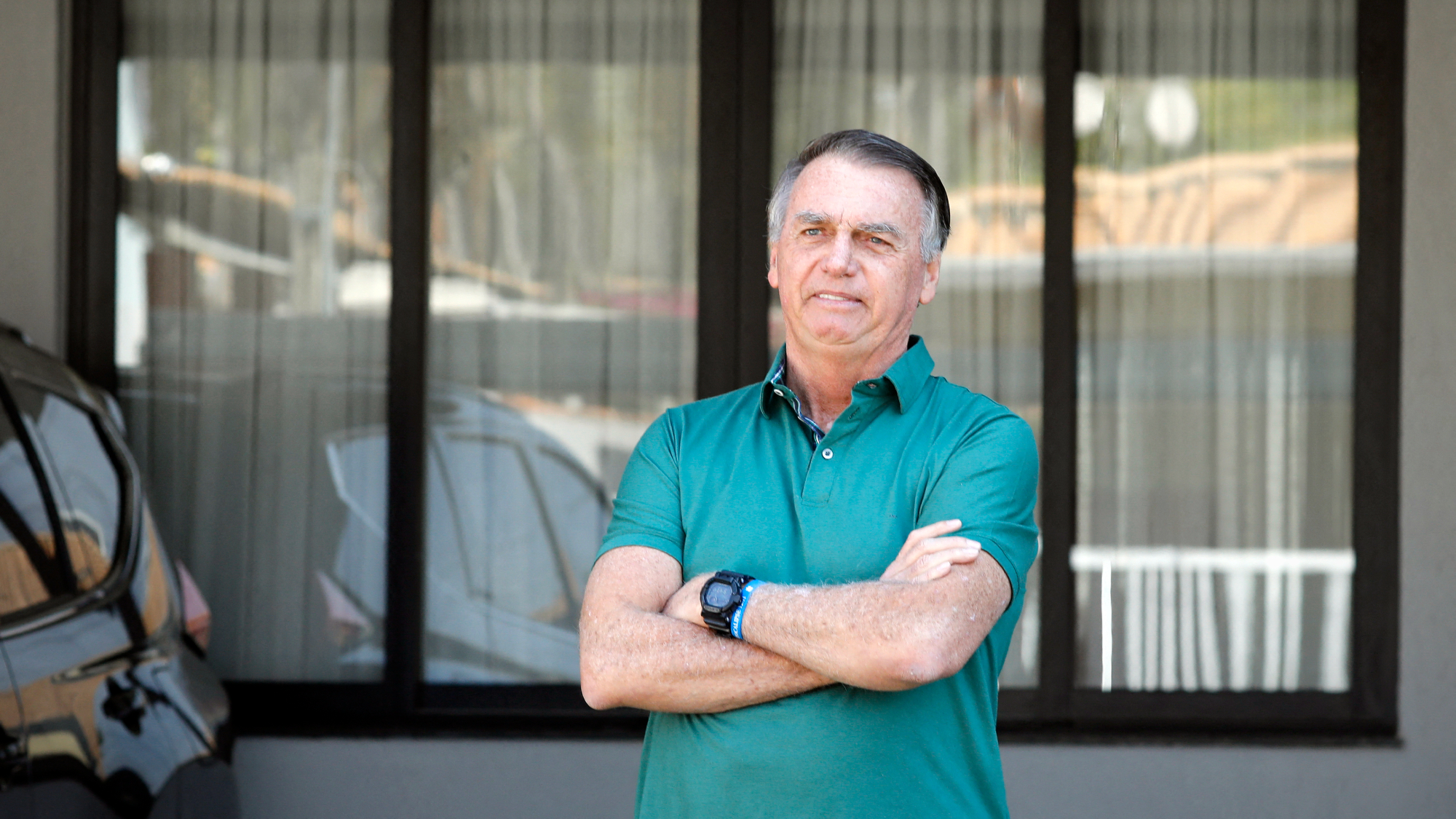 Brazil’s Bolsonaro sentenced to 27 years for coup attempt
Brazil’s Bolsonaro sentenced to 27 years for coup attemptSpeed Read Bolsonaro was convicted of attempting to stay in power following his 2022 election loss
